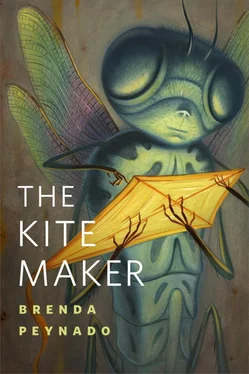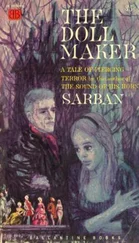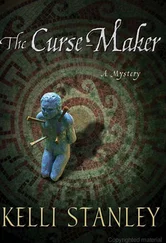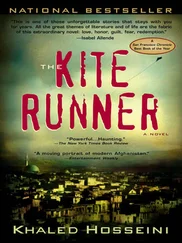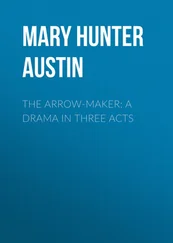Mom, we don’t need you, Aleo said.
* * *
Weeks passed. Tove did not come back. I wasn’t expecting him to. Where would he get the money? And after what I’d done. Benon got an A on his history report, the note from the teacher saying, May there be no judgment in truth. The skinheads came again into my store after another one of my customers, who was able to slip slowly out the backdoor. Benon was still spouting Dragonfly facts routinely, like, Their language doesn’t even have a grammar for commands, and Didja know they had prophecies about ending up here eventually? But this is only the third epoch in their religious texts, there’s still a fourth and a fifth about going to other places and saving us along with them. Apparently, they too had stories about arks, wandering through deserts, how many of them would fall when they got to their new home. Aleo got another tattoo, this one a poor translation of a command which they had no word for, Remember.
One afternoon, just before closing, I heard people yelling outside my store, saw the lighters flick on the other side of the frosted glass. I ran outside.
What do you think you’re doing? I yelled to the group that had gathered, the same group of skinheads that had plagued me with Tove. I meant to distract them with words, I meant to drain the fervor out of what they were doing. I meant to inject them with the moment I had years before, when I dropped my bat. But the aliens hadn’t fought back, had waited until we’d made a ruin of them.
The leader said, Stay out of the way and you won’t get hurt.
The lighters were licking strips of cardboard. I thought of how much money was inside that store in wood and cloth, what I would lose. I let my temper loose. I started yelling, calling them the curs of the world, disgusting creatures, more animal than the bugs, not fit to inherit the earth. I spat because I’d seen it done in holograms and at some point my words failed me.
The girl who had been Aleo’s friend, now confident and grown into her role, said, Lady, I wasn’t even born when they got here, and I didn’t even have the chance to do anything. What did you do when they came? You’re just like us.
That was before I knew, I said.
And now we know what we are, the girl said. You’re just pretending.
The rest of them chanted. More than one way. Bugs are bugs. The cardboard strips touched the storefront. They all stepped back.
There is more than one way, I said. I rushed forward, trying to put out the flames with my shirt, but the flames seemed to glow and leap up brighter with every swing and fan of my shirt. I yanked open the door of the shop, burning my hand on the doorknob, and ran inside.
Inside the shop, you could barely hear the crackle of the fire. I was panting. I stopped. I looked around at the shelves, the kite wall illuminated orange from the flames outside the window. Did I want to let it burn? To let everything I had done in conciliation disappear, burn up, leave no trace? For any guilt I had to disappear, to be forgiven by flames?
And then I smelled smoke. I snapped out of it, ran in a craze pulling kites down off the walls, rushing back and forth to my car parked out back, dumping everything I could and going back inside. One of the kites caught on the doorjamb, the cloth tearing like muscle, the frame snapping like bones, like legs, like antennae, a feeling I remembered. In my memory I stood over a Dragonfly, arms lifted to protect a small one. I left the baby, but I killed the mother. We were methodical in our frenzy. Dragonfly after Dragonfly, if they moved, if they didn’t move, if they made sound, if they were silent, we killed them. We were afraid. I was afraid.
I pulled all the kites down off the wall before the flames reached inside. I pulled the giant kite out of the backroom, the frame still heavy as a baseball bat, the cloth still fragile as skin.
I started driving. What did I have left in the world? My sons, my kites. The certainty of moving forward and beginning again. My fear. I wanted to scream. For a moment I let go of the steering wheel and let the car drift over into the other lane. Another car was coming down the roadway like everything in our world was normal. Then I thought of Aleo and Benon and jerked my wheel back.
I drove my car in circles. I was like a sleepwalker. I don’t even know how I got there; eventually, I ended up at the Dragonfly warehouses.
Inside, I asked, Please, does anyone know Tove Battler of Photons?
They bristled, and too late I realized I’d said his name wrong. Long black antennae-like fingers pointed me to another warehouse, down corridors, up racks of bunks. Then I found him lying on a third-floor bunk, eyes closed, his sons chattering in their mother tongue beside him.
Tove, I said.
He sat up.
I did not say, Come outside, or even please. I said, My store is burning. There is something outside. It is for you.
He stared at me for a good while. Did he hate me? He could have lain back in his bunk. Instead, he labored down slowly. He waved his antennae at his sons, and they followed at a distance.
There were tears sliding down my face. Why didn’t you defend yourself, I asked. Why?
He led the way outside, tiptoeing as if walking towards a dangerous secret. Finally, he said, Wouldn’t you have killed us all, if we had fought back and lost? You have books that say only the weak will inherit the earth. In our prophecies, the only way to stay was to not fight back.
I didn’t mean fifteen years ago, I meant in my backroom, but this answer was as good as any. I said, But why did you not fight back?
I wanted to live so badly, he said. For the first time I noticed seams on his legs where they must have been broken before, the source of his strange tiptoe walking.
And if you inherit the earth, what would you do with it? I said.
Silent, he waited for me behind the trunk of my car. A crowd of Dragonflies gathered behind us to see what this human woman wanted with one of their kind.
I opened the trunk door, passed out the kites I’d saved. Of what use could they possibly be to me? I handed the end of a rope to Tove, two others to his sons. I had five other rope ends that I passed out. Each was one piece of the giant kite.
This wasn’t charity; this wasn’t forgiveness. How could it be, after all that I had done, was still doing? I wanted to fling it in their faces, what they had lost. I wanted to see them hurt for that sky, sing for that lost planet. I wanted them to sing my own song and break open with it.
Then Tove led the eight of them forward, began running slowly with their curling legs. The kite, the sky over them as oppressive as my fear. All around me I heard gasps and yips, long protracted vowels, what they called their home planet in their own language. They moaned as the hang glider went up, that cathedral shard taking off above us, begging us all to rise.

Brenda Peynado’s stories have won an O. Henry Prize, the Chicago Tribune ’s Nelson Algren Award, a Dana Award, a Fulbright Grant to the Dominican Republic, a Vermont Studio Center Residency, and other prizes. Her work appears in The Georgia Review, Daily Science Fiction, The Sun, The Kenyon Review Online, Prairie Schooner, The Threepenny Review, and other journals. She received her MFA at Florida State University and her PhD at the University of Cincinnati. She teaches screenwriting, fiction writing, and worldbuilding at the University of Central Florida. She’s currently writing a novel about the 1965 civil war in the Dominican Republic and a girl who can tell all possible futures. You can sign up for email updates here.
Читать дальше
